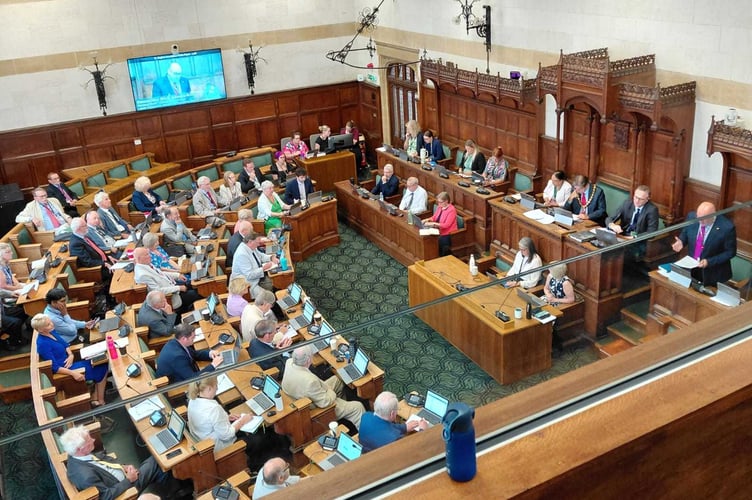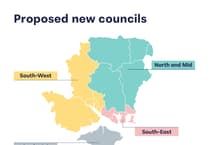Local government reorganisation “will happen” regardless of “moaning” or “groaning”, a county councillor has said.
Hampshire County Council has put forward its preferred option in LGR to create four new unitary authorities in the region.
The council wants to see four authorities:
North and Mid: Basingstoke and Deane, East Hampshire, Hart, Rushmoor, Winchester.
South-West: Eastleigh, New Forest, Southampton, Test Valley.
South-East: Fareham, Gosport, Havant, Portsmouth.
Isle of Wight.
This proposal was backed by part of the opposition bench at the authority’s full council meeting on July 17.
Under the government’s plan, the two-tier system will be abolished, and larger unitary authorities, each covering a population of approximately 500,000 people, will be established in the region.
At full council, members of Hampshire County Council debated the proposed option selected by the administration.
The proposal for four unitary authorities was backed by 42 councillors who voted in favour, 13 against, and five abstained.
Those against were all Liberal Democrat councillors, except Cllr Alan Dowden, who voted in favour.
Among the abstentions were the chairman, Cllr Mark Cooper (Lib Dem) and the vice-chairman, Cllr Pal Hayre (Con), as well as Cllr Tim Davies (Con), Cllr Stephen Phillpott (Con), and the Green Party councillor Malcolm Wallace.
The same number of councillors also agreed to launch a public consultation before submitting to the government’s deadline on September 26.
The consultation opened on Monday, July 21 and will run for four weeks.
Feedback will be reviewed to “shape” the council’s proposal and this will be presented to the government.
Leader of the Labour group, Cllr Kim Taylor, said that the county council’s proposal to establish four unitary authorities “stands out” as “the most likely to deliver sustainable benefits” for the region.
She said: “We have to accept that LGR is happening, and no moaning or groaning is going to change that. I believe that we must resist the temptation of fragmentation. Bigger isn’t always better, but too small can be dangerously brittle.
“We have a rare chance to reshape local government in our area, and we should do that not with nostalgia or idealism but with enthusiasm and responsibility.”
In relation to recent concerns over the size of the new unitaries, she said she doesn’t agree with the statement that larger authorities would “automatically destroy local identity or accountability”.
She added: “If local identity and a sense of community engagement want to be preserved, it can and it will.
“Size may well be important to some, but as the saying goes, it really counts what you do with it.”
Cllr Andy Tree, from the independent group Whitehill & Bordon Community Party, said that what his residents want are “strong” councils that are “financially stable” that charge “fair” council tax, deliver value for money and have “ultimate democratic oversight”.
Cllr Tree said: “It’s simple. Keep our vulnerable safe, fix potholes, empty the bins and govern responsibly.
“We have the responsibility, as best we can, to promote a plan to protect what we do.
“I do make the point when I speak to people, if the town council makes a mistake, maybe the park is closed. If the district council makes a mistake, the bins aren’t collected. But if the county council makes a mistake with its most vulnerable residents, the outcome could be extremely dire.”



.png?width=209&height=140&crop=209:145,smart&quality=75)
Comments
This article has no comments yet. Be the first to leave a comment.